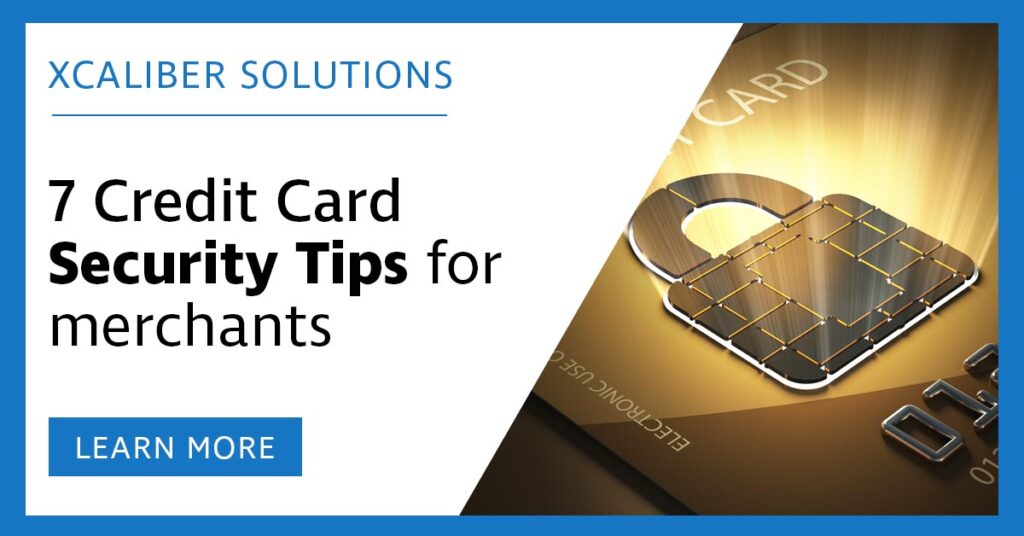7 Credit Card Security Tips for Merchants

Merchants who accept credit card payments have a significant responsibility to protect their customers’ sensitive financial information. Credit card data breaches can cause significant harm to individuals, as well as to businesses’ reputations and finances. Therefore, it’s essential for merchants to prioritize security and implement measures to protect their customers’ data. In this blog post, we’ll share seven credit card security tips for merchants.
Use a secure payment processor
One of the most important things a merchant can do is to use a secure payment processor. Look for a provider that complies with the Payment Card Industry Data Security Standards (PCI DSS). PCI DSS is a set of security standards that all merchants who accept credit cards must adhere to. It includes requirements for secure networks, encryption, and access controls.
Encrypt all credit card data
Encryption is a critical component of data security. It protects sensitive data by converting it into an unreadable format that can only be deciphered with the proper encryption key. All credit card data should be encrypted, both in transit and at rest.
Limit access to credit card data
Limiting access to credit card data is essential for preventing unauthorized access. Only authorized personnel should be able to access credit card data, and access should be restricted to those who need it to perform their job duties. This includes implementing strong passwords, multi-factor authentication, and limiting physical access to credit card data.
Train employees on security protocols
Employees are often the weakest link in a company’s security chain. Merchants should invest in security training for all employees who handle credit card data. This should include education on phishing scams, password best practices, and how to handle sensitive information.
Regularly update software and hardware
Outdated software and hardware are more vulnerable to security threats. Merchants should ensure that all software and hardware used in credit card processing is up-to-date and that security patches are installed promptly. This includes point-of-sale systems, payment gateways, and any other software or hardware that handles credit card data.
Monitor for suspicious activity
Monitoring for suspicious activity is an essential part of any security plan. Merchants should regularly review credit card transactions for unusual patterns or trends that may indicate fraudulent activity. They should also monitor their systems for any signs of a data breach, such as unusual network activity or unauthorized access attempts.
Have a response plan in place
Despite taking all necessary precautions, data breaches can still occur. That’s why it’s crucial to have a response plan in place. This plan should outline what steps the merchant will take in the event of a data breach, including notifying customers and authorities, securing their systems, and conducting a thorough investigation.
In conclusion, merchants who accept credit card payments have a significant responsibility to protect their customers’ data. Implementing the above security tips can help reduce the risk of a data breach and protect both the merchant and their customers. By prioritizing security, merchants can establish trust with their customers and safeguard their reputation and finances.

